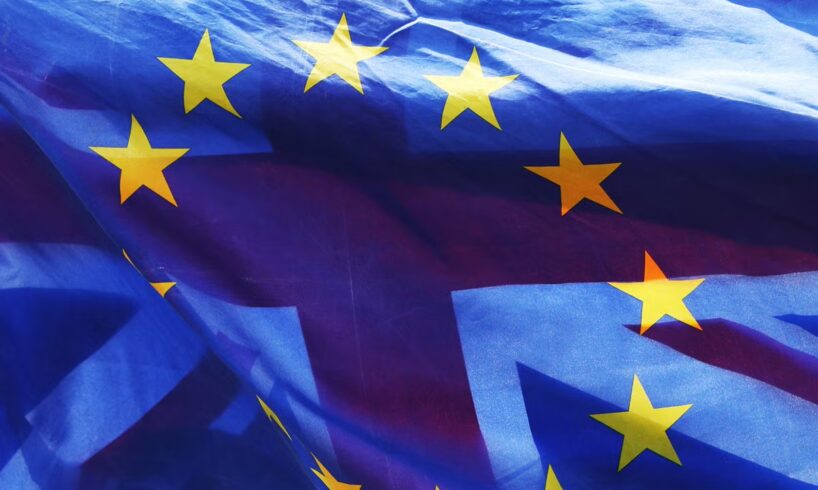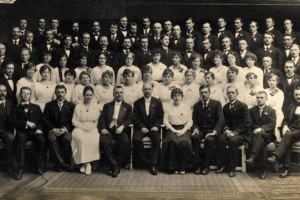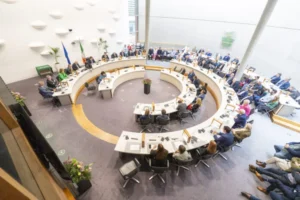
Sign up to our free Brexit newsletter for our analysis of the continuing impact of Brexit on the UK
Sign up to our free newsletter for the latest analysis on Brexit’s impact
Sign up to our free newsletter for the latest analysis on Brexit’s impact
The majority of Britons do not feel proud of their country, a new survey has revealed.
The wide-ranging polling on attitudes also suggested that people increasingly believe the UK is divided, that so-called culture wars exist, and that life was better in the past.
Researchers from King’s College London (KCL) said a “frightening increase in the sense of national division” that began post-Brexit appears to have “morphed into” party political and other splits around immigration and “culture wars”.
The findings, which are from the college’s policy institute and pollster Ipsos, showed fewer than half of Britons now have a sense of pride in their country, falling from 56 per cent to 46 per cent in the past five years.
When it comes to a feeling of division in the UK generally, 84 per cent of people said they feel this way, up from 74 per cent in 2020.
Researchers from King’s College London (KCL) said a ‘frightening increase in the sense of national division’ that began post-Brexit appears to have ‘morphed into’ party political and other splits around immigration and ‘culture wars’ (PA Archive)
Exactly half of people said they believe the culture in the UK is changing too fast, up from just over a third (35 per cent) five years ago, while a similar amount (48 per cent) say they would like their country to be “the way it used to be”. This is up from around a quarter (28 per cent) in 2020, and the findings showed a rise across all age groups.
Professor Bobby Duffy, director of the policy institute at KCL, said: “This latest study shows a frightening increase in the sense of national division and decline in the UK in just a few years. We’ve seen steep rises in the beliefs that the UK is divided, that ‘culture wars’ are real and that things were better in the past.”
The poll also suggested that 86 per cent of people now feel there is tension between immigrants and people born in the UK – up from 74 per cent in 2023 and marking a new high.
And the findings show public opinion on transgender rights has “shifted significantly”, researchers said, with those saying these rights have “gone too far” more than doubling since 2020 – now at 39 per cent up from 17 per cent.
The view has become more prominent among all age groups, and while fewer than a fifth (19 per cent) of 16 to 24-year-olds feel this way, this has more than doubled in the past five years, up from 9 per cent in 2020.
Overall, 19 per cent of all those asked said they felt transgender rights have not gone far enough in the UK, down from 31 per cent in 2020.
The polling of 4,027 people aged 16 and older in August came four months after the Supreme Court ruling, which said the words “woman” and “sex” in the Equality Act 2010 refer to a biological woman and biological sex.
Elsewhere, almost half (48 per cent) of the public said they consider being described as “woke” as being an insult, rather than a compliment – up from under a quarter (24 per cent) in 2020.
Woke is defined by the Cambridge dictionary as being “aware, especially of social problems such as racism and inequality”.
Mr Duffy said the UK had lived through “an incredibly divisive period around the EU referendum and its aftermath” and that division appears to have “morphed into party political and other splits, with attitudes to immigration and the speed of culture change more generally at the heart of them”.
Gideon Skinner, senior director of UK politics at Ipsos, said: “Perceptions of political and cultural disharmony are growing, reflecting a society grappling with nostalgia, the pace of change, and growing tensions over immigration, and with polarised views over what terms like ‘woke’ signify.”
But he cautioned that: “On many issues there is no clear consensus, with a need to understand the differences under the topline figures; it should not be forgotten that many people are not on the extremes in their views”.





